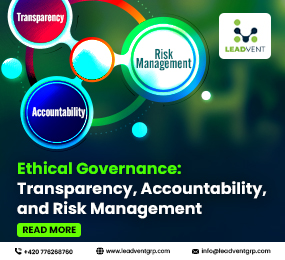Introduction
In 2025, sustainable investing is no longer just a trend—it’s a necessity. Investors worldwide are increasingly looking beyond financial returns, seeking opportunities that align with Environmental, Social, and Governance (ESG) principles. This shift reflects the growing awareness of climate change, social inequalities, and ethical business practices.
One of the most influential platforms shaping the future of sustainable investing is the 2nd Annual World ESG and Climate Summit. This event brings together industry leaders, policymakers, and investors to explore how sustainable strategies can drive both profits and positive impact.
What is Sustainable Investing?
Sustainable investing integrates Environmental, Social, and Governance (ESG) factors into financial decision-making. It focuses on companies that prioritize sustainability while maintaining strong financial performance. Investors can achieve this through:
- ESG-focused mutual funds and ETFs
- Green bonds that finance eco-friendly projects
- Impact investing, which supports businesses with measurable social or environmental benefits
- Socially responsible investing (SRI), where investors screen out industries like tobacco or fossil fuels
Why Sustainable Investing Matters
1. Financial Performance and Risk Management
- Studies show that companies with strong ESG practices outperform their peers in the long run.
- Sustainable investing reduces exposure to risks such as regulatory fines, reputational damage, and market volatility.
2. Driving Positive Environmental and Social Impact
- Investing in renewable energy, clean technology, and ethical labor practices contributes to a more sustainable world.
- Sustainable investing encourages businesses to adopt greener and fairer operations.
3. Regulatory and Consumer Trends
- Governments worldwide are introducing stricter ESG regulations.
- Consumers prefer brands that prioritize sustainability, influencing corporate strategies.
Case Studies on Sustainable Investing Success
Case Study 1: Tesla’s Role in Sustainable Investments
Tesla has become a top choice for sustainable investing, with its commitment to electric vehicles and renewable energy. The company’s ESG strategy has led to significant financial growth while reducing global carbon emissions.
Case Study 2: Patagonia’s Ethical Business Model
Outdoor clothing brand Patagonia integrates Environmental, Social, and Governance (ESG) principles by using sustainable materials, fair labor practices, and donating profits to environmental causes. This strategy has boosted brand loyalty and financial success.
The Role of Climate Innovation Conferences in Sustainable Investing
Events like the 2nd Annual World ESG and Climate Summit provide invaluable insights into the future of sustainable investing. Topics covered at this Climate Innovation Conference include:
- The impact of ESG regulations on global markets
- Emerging trends in green finance and carbon credits
- Technological innovations driving sustainability in investments
- Case studies from industry leaders in climate-conscious investing
Attending such a Climate Innovation Conference offers investors:
- Networking opportunities with sustainability experts and policymakers
- Practical strategies for integrating ESG factors into investment portfolios
- Exclusive insights into the latest market trends and investment opportunities
Statistics on Sustainable Investing
- ESG assets are expected to reach $50 trillion by 2025, making up over one-third of global investments.
- Companies with strong ESG practices have shown higher stock performance and lower volatility.
- 72% of retail investors now consider sustainable investing a priority.
- Over 90% of major corporations are incorporating Environmental, Social, and Governance (ESG) reporting into their annual reports.
FAQs
1. What is the difference between ESG investing and impact investing?
ESG investing focuses on integrating Environmental, Social, and Governance (ESG) factors into investment decisions, while impact investing targets businesses that generate measurable positive social or environmental impact alongside financial returns.
2. Are sustainable investments as profitable as traditional investments?
Yes. Multiple studies indicate that sustainable investing can match or outperform traditional investments due to better risk management and increasing consumer demand for ethical businesses.
3. Why should investors attend the Climate Innovation Conference?
Attending a Climate Innovation Conference provides critical insights into the latest trends, regulations, and technologies in sustainable investing, helping investors make informed and profitable decisions.
Conclusion
The future of sustainable investing is bright, with growing opportunities for financial returns while positively impacting society and the environment. By integrating Environmental, Social, and Governance (ESG) principles into investment strategies, businesses and investors alike can drive meaningful change. Events like the 2nd Annual World ESG and Climate Summit play a crucial role in shaping the future of sustainable investing, providing actionable insights and networking opportunities for industry leaders.
















